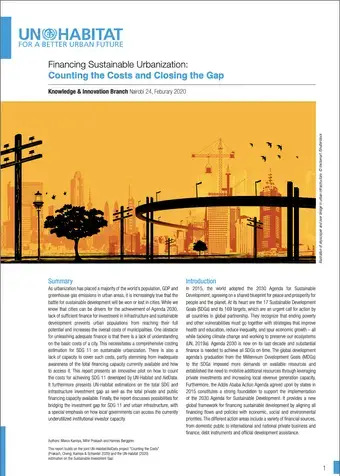Overview
Presently, UN-Habitat is implementing several projects in Malaysia led by the Urban Planning and Design Branch, including public space, green transport and heritage initiatives in Melaka, as well as, support to a smart integrated mobility system in Iskandar. UN-Habitat is also working with the Penang State Government to ensure that future development is aligned to SDGs, particularly SDG11. Both parties are committed to implementing the City Prosperity Initiative in Penang, the first of its kind in the country. As a non-resident UN agency in Malaysia, UN-Habitat is a member of the UN Country Team Malaysia, with its representation through the support of the UN-Habitat Nairobi Office and UN-Habitat’s strategic partner Think City, a subsidiary of Khazanah National, the investment holds arms of the Government of Malaysia. Malaysia is also the former host of the Ninth Session of the World Urban Forum (WUF9) held in Kuala Lumpur, Malaysia, in February 2018, and the host of the Seventh session of the Asia-Pacific Urban Forum to be held in Penang in October 2019.
Over the past four decades, Malaysia has made huge strides in socioeconomic development, transforming itself from an underdeveloped country reliant on natural resources into a middle-income country with a vibrant manufacturing sector. The nation is now in its second phase of development towards achieving its Vision 2020 with urbanization expected to reach 79.8% by 2025 growing rapidly from 62% in 2000 and which is particularly prominent in Peninsula Malaysia. For areas such as Kuala Lumpur and Putrajaya in particular, where the level of urbanization is 100%, the pattern of growth has been fragmented and scattered, with much of the new growth characterized by infill development, while there is also recognition of over-burdened public amenities, shrinking green areas, and an increasing urban poor population. For many graduates entering the market in Malaysia, over 77% who described themselves as having little to no savings, affordable housing is a further challenge with houses in Malaysia costing 5.5 times more than the annual median income.
Prioritizing infrastructure development to accelerate economic growth, connectivity, mobility and the wellbeing of the people, the scope of infrastructure investments in Malaysia has ranged from transportation to power, water and sanitation, drainage and irrigation, communications, and cities and urban settlements. Like many countries, grappling with the challenge of balancing a growing population and demand, with a natural environment that is increasingly under stress, sustainable consumption, and production (SCP) was introduced for the first time in the Eleventh Malaysia Plan (2016-2020). Efforts are now underway to address these challenges from a policy perspective as Malaysia prepares its Twelfth Malaysian Plan.
At the national level, median house prices were 4.4 times median annual household income in 2014 and 5.5 times in some areas.
Declining share of both income and expenditure allocated to local governments from the national budget at 0.03% in 2014.
Over the 10 years from 2003 to 2013, the generation of municipal solid waste in Malaysia increased more than 91%; only 2% is recycled.
Country Beneficiaries
Donors and partners
As a non-resident UN agency in Malaysia, UN-Habitat is a member of the UN Country Team Malaysia, with its representation through support of the UN-Habitat Nairobi Office and UN-Habitat’s strategic partner Think City, a subsidiary of Khazanah National, the investment holding arms of the Government of Malaysia.










